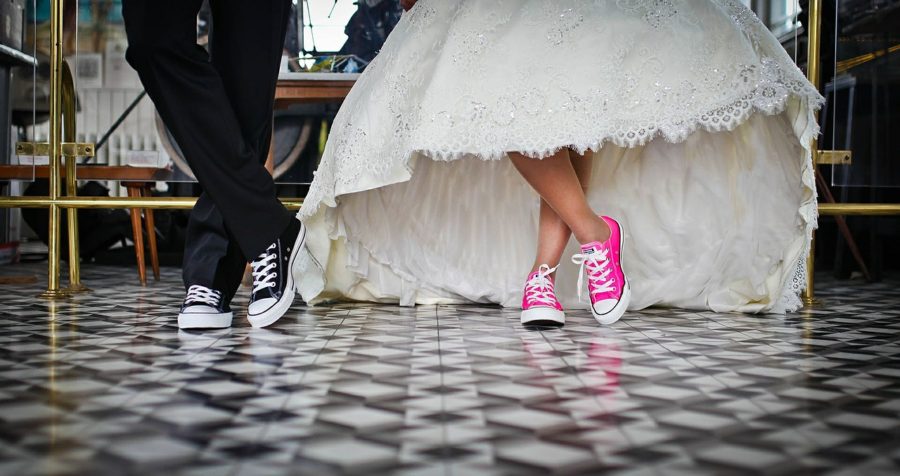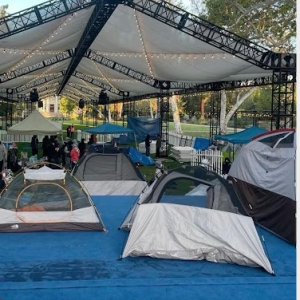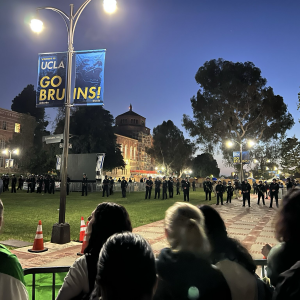 View Winners →
View Winners → 3 Reasons Why Millennials Aren’t Tying The Knot


Millennial women are marrying at an average age of 26 and 29 for men, compared to the 1970’s when women were a median age of 20 at marriage and men at 23. – Courtesy photo
By Sadie Gribbon
Millennials are marrying and having children at much later stages in life than the generations before them. Being nurtured through technology, Millennials have seen what the world has to offer and they aren’t ready to settle as easily as generations before. Millennial women are marrying at an average age of 26 and 29 for men, compared to the 1970’s when women were a median age of 20 at marriage and men at 23. Not only are Millennials unwilling to settle for anything beneath their dreams, but they are slow to settle down with a partner and be stunted by children for multiple reasons, here are just a few:
Millennials are the most educated generation in history thus far
According to the White House Economic Advisers, Millennials have the highest rate of post-secondary education in history. They have seen the value of a degree after witnessing the Great Recession and view society as risk/reward game. They have been a generation ridiculed for receiving “participation awards” instead of facing the fact that there are winners and losers, but this has forced Millennials to see the world in front of them differently; if you put in the work, say for a college degree, you reap the benefits of higher pay. According to White House Archives, “Increasing college enrollment is in part a response to decades of rising returns to education for workers and heightened income inequality between the college-educated and the less-educated. Millennials’ commitment to higher education is therefore a rational response to a labor market that confers large rewards on more educated workers.”
Millennial women are more realistically empowered now than ever before
For the Millennial generation, women account for nearly half of the entire workforce. Women from generations before them like Elizabeth Warren have stood up in front of a primarily-male Congress and protested for women’s rights and are the reason why there are more women in Congress right this minute than there ever have been. It is hard to become something you have no example of, and women from previous generations have paved the way to show women since they were little girls that they can achieve their dreams no matter how large. This doesn’t mean we, as a generation, have achieved anything near equality in the workplace. According to the 2016 Women in the Workplace Report women still have less access to senior leaders than men, while they negotiate for raises as much as men they are “30 percent more likely than men who negotiate to receive feedback that they are ‘bossy,’ ‘too aggressive,’ or ‘intimidating.’”
Women still face inequality in the workforce, but parental leave has become more flexible and flexibility makes being in the workforce slightly easier, as they are still seen as primary caregivers for their children over men. This skewed version of society is yet to be overcome, but society is slowly edging closer. No longer living in a workforce where being able to lift over 50 pounds is a requirement, brain strength is higher paying and in higher demand than before, which is amazing for the female population as they account for more than half of higher education degrees in America. For women, having a successful career is now an option in a workforce that recognizes sexual harassment as an issue and economic policy that prohibits gender inequality. With a less “Mad Men” style environment, women have a shot of serious careers so getting married and having children is put on the backburner until their late twenties, a drastic change from generations before.
The majority of Millennial’s parents, Baby Boomers, have been divorced
Baby Boomers have the highest rates of divorce, more than half of their generation’s marriages have ended that way. Humans are behavioral learners: we see, we do. But younger generations are more inept to recognizing behaviors that are considered bad in the American social structure. So as we see our parents burn their hands on the flame of marriage, we think twice. This doesn’t mean Millennials do not want to get married, but they see their options and opportunities as stepping stones to be reached before coming to the conclusion of marrying. Of course, Millennials think this makes us wiser or more atoned to our needs, but there is still plenty of time to end up in the same boat as our parents. Rates of divorce have declined for the Millennial generation, but this doesn’t mean it will stay that way, as most marriages that began in the 1990’s ended after 15 years.
Millennials are a confusing generation; they are independent, strong-minded and inventive. Education level, gender roles in their society and the constructed idea of marriage has changed. Time is not measured the same to Millennials and when it comes down to what is important, finding happiness through a successful, creative and worldly career beats marriage hands-down … or at least until their late twenties.












































































































